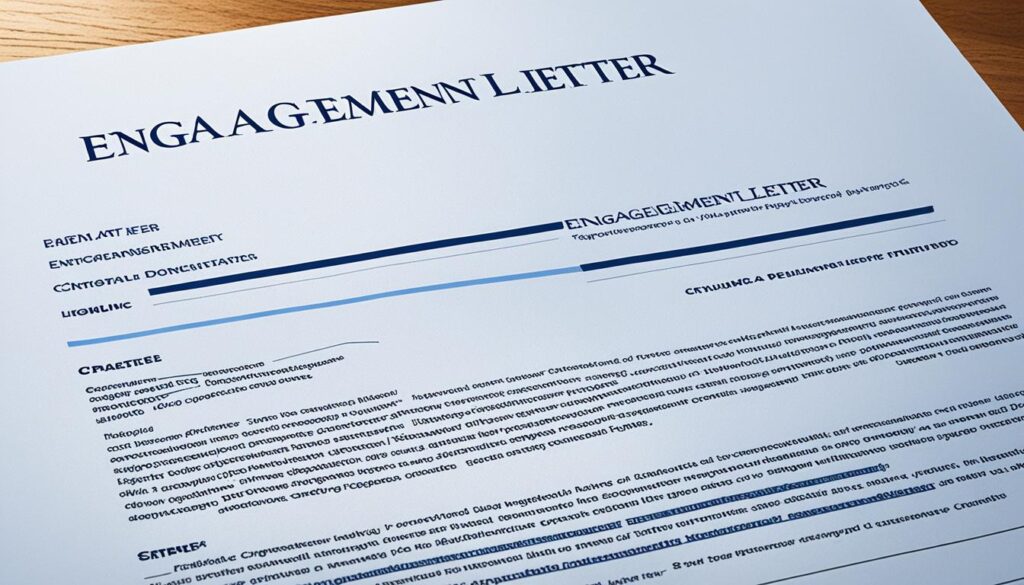Tips For Hiring a lawyer is a crucial step in resolving legal matters, and making an informed decision is essential to ensure you receive the best possible representation. By considering various factors and following these tips, you can navigate the process of hiring a lawyer with confidence.
When it comes to hiring a lawyer, recommendations from trusted individuals can be invaluable. Start by reaching out to your circle of friends, neighbors, and colleagues who may have had positive experiences with lawyers in the past. Their insights can guide you towards reliable legal representation that meets your specific needs.
In addition to personal recommendations, explore online resources for finding reputable lawyers. Websites like Martindale.com offer peer-reviewed lawyer ratings, while Superlawyers.com lists top lawyers nominated by their peers. Online reviews can also provide valuable insights. Alternatively, consider using a lawyer referral service to find suitable legal representation discreetly.
When evaluating lawyers, consider the size of the law firms. Big firms may have the resources for complex cases, but they often come with higher hourly rates. On the other hand, small firms may provide personalized attention and potentially lower rates. Assess your specific legal needs to determine whether a big or small firm is the best fit for your case.
Before meeting with a lawyer, it is crucial to conduct pre-interview due diligence. Visit the lawyer’s website to gather information about their practice and conduct web searches for additional insights or reviews. Being well-informed allows you to ask relevant questions during the interview process and evaluate a lawyer’s expertise and compatibility.
The interview process provides an opportunity to assess a lawyer’s suitability for your case. Prepare a list of questions covering their experience with similar cases, approach to handling your case, communication methods, availability, and responsiveness. These questions help you gauge the lawyer’s expertise and determine whether they align with your needs.
Understanding legal fees is also essential. Lawyers may charge hourly rates, flat fees, or contingency fees depending on the case. Take time to comprehend the fee structure and associated expenses, ensuring they align with your budget and expectations.
When engaging with a lawyer, ensure you have a clear understanding of the fee structure by reviewing an engagement letter. This letter outlines the terms and conditions of the representation, including minimum billing increments, expenses, and any limitations on the scope of the representation. It serves as a contract that protects both parties involved.
During the attorney-client relationship, maintain proactive communication by requesting copies of relevant documents and staying informed about the progress of your case. Open lines of communication will facilitate a smooth and efficient legal process.
If you are unsatisfied with your lawyer or the representation provided, you have the right to terminate the relationship. Communicate your decision with the lawyer and settle any outstanding fees. Should fee disputes arise, most jurisdictions offer mechanisms through fee dispute mechanisms or local bar associations to resolve the matter.
Making an informed decision when hiring a lawyer is vital to securing the best representation for your specific legal needs. By following these essential tips, you can navigate the hiring process with confidence and find a lawyer who aligns with your goals and requirements.
Key Takeaways: Tips For Hiring a lawyer
- Seek recommendations from friends, neighbors, and colleagues to find reliable lawyers.
- Utilize online resources like Martindale.com and Superlawyers.com for peer-reviewed lawyer ratings and online reviews.
- Consider the size of law firms when evaluating representation options.
- Conduct pre-interview due diligence to gather information about the lawyer and their practice.
- Prepare a list of questions to ask during the interview process to assess a lawyer’s suitability.
Start With Your Circle of Friends, Neighbors, and Colleagues
When it comes to hiring a lawyer, it’s essential to make an informed decision. One of the most reliable ways to find a trustworthy lawyer is by seeking recommendations from your circle of friends, neighbors, and colleagues. Their personal experiences can offer valuable insights and help you narrow down your options.
List the names of your recommended lawyers and their respective areas of expertise:
| Lawyer | Area of Expertise |
|---|---|
| John Smith | Personal Injury |
| Jane Davis | Family Law |
| Michael Johnson | Criminal Defense |
By collecting multiple recommendations, you can compare their experiences, strengths, and areas of specialization. Consider the specific area of law that your legal issue pertains to, and look for lawyers who specialize in that field.
Choosing the Right Lawyer Through Recommendations
Getting recommendations from your trusted circle has several benefits. Firstly, it allows you to gather first-hand accounts of clients who have worked with the recommended lawyers. Their experiences can help you gauge the quality of service and establish a sense of trust. Additionally, recommendations can save you time and effort in your search, as they provide a starting point in finding the right lawyer for your needs.
“I was going through a tough divorce, and my colleague recommended Jane Davis, a family law specialist. Her guidance and expertise made a significant difference in my case, and I highly recommend her to anyone seeking legal assistance in family matters.” – Sarah Thompson
While recommendations from your circle can be valuable, it’s important to remember that each legal case is unique. Prioritize your specific needs and requirements when considering the recommendations, as what worked for someone else may not be the best fit for you. Evaluate the lawyer’s expertise, qualifications, and track record in handling cases similar to yours.
With the insights gained from recommendations, you can compile a list of potential lawyers who specialize in your legal area of interest. This list will serve as a solid starting point for further research and evaluation.
In the next section, we will explore other sources to expand your options and find the most suitable lawyer for your specific legal needs.
Exploring Other Sources for Recommendations
If you prefer to keep your search discreet, there are several internet resources available to help you find reliable lawyers. These resources provide valuable information to assist you in making an informed decision. Here are some options to consider:
1. Lawyer Ratings and Reviews
Utilize websites that offer lawyer ratings based on peer reviews. Martindale.com is a trusted platform where you can find comprehensive lawyer ratings. The platform provides insights into a lawyer’s experience, expertise, and client satisfaction. It is a valuable resource for evaluating lawyers based on their track record and reputation.
2. Top Lawyer Lists
Superlawyers.com is another excellent platform that lists top lawyers nominated by their peers. These lists highlight lawyers who have demonstrated exceptional skill and professionalism in their respective fields. Consider reviewing these lists as they can provide valuable recommendations when searching for legal representation.
3. Online Reviews and Testimonials
Online review platforms such as Yelp, Google Reviews, and Avvo can provide helpful insights into the experiences of previous clients. Reading reviews and testimonials can give you an idea of how well a lawyer communicates, handles cases, and provides overall client satisfaction. Take these reviews into account when considering potential lawyers.
4. Lawyer Referral Services
If you prefer personalized assistance in finding a lawyer, consider using a lawyer referral service. These services connect individuals with qualified attorneys in their area who specialize in their specific legal needs. Lawyer referral services can save you time and effort while ensuring you are matched with a reputable lawyer who meets your requirements.
By exploring these internet resources, you can gather valuable information and insights to make an informed decision when choosing a lawyer. Remember to consider multiple sources and reviews to get a well-rounded view of the lawyers you are considering.

Considering the Size of Law Firms
When it comes to choosing a law firm, one of the factors to consider is its size. The size of the firm can have implications for the complexity of your legal issue and the cost of legal services.
Big firms are often equipped with substantial resources and a diverse team of attorneys specializing in different areas of law. This can be advantageous for complex cases that require extensive research, expert opinions, and a large support staff. However, it’s important to note that big firms generally have higher hourly rates due to their overhead costs and the expertise they bring to the table.
On the other hand, small firms may offer a more personalized approach to legal representation. With a smaller team, you may have direct access to the attorney handling your case, fostering a closer and more collaborative relationship. Additionally, small firms may have potentially lower rates compared to their bigger counterparts, making legal services more accessible.
When deciding between a big firm and a small firm, consider the complexity of your legal issue and your individual needs. If your case requires extensive resources, intricate legal research, or involves multiple parties, a big firm may be better suited to handle the complexity. However, if you prefer a more hands-on approach, personalized attention, and potentially lower rates, a small firm may be the right choice for you.
Ultimately, the decision between a big firm and a small firm should be based on an assessment of your unique legal needs, the complexity of your case, and your budget. It’s important to choose a firm that aligns with your specific requirements to ensure the best possible legal representation.
Pre-interview Due Diligence
Before meeting with a lawyer, it is essential to conduct pre-interview due diligence. This step ensures that you have the necessary information to make an informed decision. So, where do you start gathering this information? Here are a few key steps:
- Visit the lawyer’s website: Take the time to explore the lawyer’s website. This valuable resource will often provide insight into their practice areas, experience, and expertise. Look for details that align with your specific legal needs.
- Conduct web searches: Expand your research beyond the lawyer’s website. Conduct web searches using relevant keywords and phrases. These searches can uncover additional information about the lawyer, including any news articles, blog posts, or publications they have authored. This information can provide valuable context and help you gauge their reputation.
- Seek additional information or reviews: In addition to web searches, consider seeking out additional information or reviews about the lawyer. Online platforms such as legal forums, social media, or review websites may have insights from previous clients or colleagues in the legal community. However, always use your discretion when considering online reviews, as they may not always present a comprehensive picture.
By undertaking these steps, you can gather a holistic view of the lawyer and their practice. This knowledge will help you evaluate the lawyer’s suitability for your specific legal needs and make an educated decision.
Remember, the goal of pre-interview due diligence is to gather additional information and insights that may not be readily available through other channels. It’s an essential part of the hiring process, ensuring you have all the information you need to make an informed choice.

The Interview Process
The interview process is a critical step in finding the right lawyer for your case. It allows you to evaluate their suitability and expertise based on your specific needs. To make the most of your interview, it is important to come prepared with a list of questions that cover important factors such as:
- The lawyer’s experience with similar cases
- The lawyer’s approach to handling your case
- The lawyer’s communication methods
- The lawyer’s availability and responsiveness
By asking these questions, you can gain valuable insights into the lawyer’s background, expertise, and compatibility with your case. Consider incorporating the following questions into your interview:
“Can you tell me about your experience with similar cases to mine? How did you handle them?”
“What is your approach to handling cases like mine? Can you give me an overview of the process?”
“How do you prefer to communicate with your clients? Do you provide regular updates?”
“What is your availability like? Will I be able to reach you when needed?”
Asking these questions will allow you to assess the lawyer’s expertise, case handling strategies, communication style, and availability. Their responses will help you determine if they align with your specific needs and expectations.

Remember, the interview process is also an opportunity for you to gauge your comfort level and establish a rapport with the lawyer. Trust and effective communication are crucial aspects of a successful attorney-client relationship. Take your time, ask your questions, and evaluate whether the lawyer is the right fit for your legal needs.
| Key Topics to Discuss: | Questions to Ask: |
|---|---|
| Experience with similar cases | Can you tell me about your experience with similar cases to mine? How did you handle them? |
| Approach to handling your case | What is your approach to handling cases like mine? Can you give me an overview of the process? |
| Communication methods | How do you prefer to communicate with your clients? Do you provide regular updates? |
| Availability and responsiveness | What is your availability like? Will I be able to reach you when needed? |
By asking these questions, you can gather the necessary information to make an informed decision about hiring a lawyer who is best suited to represent your interests and provide the legal expertise you require.
Understanding Legal Fees
When seeking legal representation, it is essential to have a clear understanding of the lawyer’s fees and fee structures. Lawyers typically charge for their services through different methods, including hourly rates, flat fees, or contingency fees. Each fee structure is applicable to different legal situations, and understanding how a lawyer will charge you is crucial to managing your budget effectively.
Hourly rates are a common fee structure used by lawyers. With this approach, the lawyer charges a specific rate for each hour of work they dedicate to your case. Hourly rates can vary depending on factors such as the lawyer’s experience, location, and the complexity of your legal matter. It is important to consider the value of the services provided in relation to the cost when evaluating hourly rates.
Flat fees are another fee structure used by lawyers, particularly for specific types of legal services. With a flat fee, the lawyer charges a set amount for a particular service, regardless of the time it takes to complete. This fee structure can be beneficial for clients who have a clear scope of work and want to avoid unexpected costs. Flat fees are often used for services such as drafting contracts, wills, or handling uncontested divorces.
Contingency fees are commonly used in cases where the client is seeking financial compensation, such as personal injury or medical malpractice claims. With a contingency fee arrangement, the lawyer’s payment is contingent upon the successful outcome of the case. If the case is won or settled favorably, the lawyer receives a percentage of the compensation awarded. If the case is not successful, the lawyer does not receive a fee, although the client may still be responsible for other expenses incurred throughout the legal process.
It is crucial to discuss the specific fee structure with your lawyer before starting the representation. Ensure that all fee agreements are in writing and clearly detail the services covered, the fee structure, as well as any additional expenses you may be responsible for. This transparency will help avoid misunderstandings and ensure a smooth client-lawyer relationship.
A solid understanding of legal fees empowers you to make informed decisions about your legal representation and budget. Whether you are comfortable with hourly rates, prefer the predictability of flat fees, or are considering a contingency fee arrangement, discussing these options with potential lawyers will help you choose the best fee structure that aligns with your needs and financial situation.
Exploring Fee Structures in Depth
When engaging with a lawyer, it is crucial to have a clear understanding of the fee structure. An engagement letter will outline the terms and conditions of the representation, including minimum billing increment, expenses, and any limitations on the scope of the representation. This letter serves as a contract between you and the lawyer, ensuring both parties’ protection.
One important aspect of the fee structure is the minimum billing increment. This refers to the smallest unit of time for which you will be billed. For example, if the minimum billing increment is 0.1 hours, any work performed that takes less than 0.1 hours will be rounded up to the nearest increment. It is important to clarify the minimum billing increment with your lawyer to avoid any surprises.
Another factor to consider in the fee structure is expenses. These are additional costs incurred in the course of your legal representation, such as court filing fees, expert witness fees, or travel expenses. Make sure to discuss with your lawyer how these expenses will be handled and whether they will be billed separately or included in the overall fee.
Fee structure variations can also exist depending on the nature of your legal matter. Some lawyers may charge a flat fee for certain services, such as drafting a will or reviewing a contract. This means that you will pay a predetermined amount for the specific task, regardless of the time spent. On the other hand, for more complex cases, lawyers may charge an hourly rate where you are billed for the actual time spent on your case. Additionally, in certain situations, a lawyer may work on a contingency fee basis, where their fee is contingent on a successful outcome or settlement.

During the Relationship
Once the attorney-client relationship has started, proactive communication is key to ensuring a smooth and efficient legal process. By maintaining open lines of communication with your lawyer, you can stay informed about the progress of your case and address any concerns in a timely manner. Here are some essential tips for effective communication during the course of your representation.
Proactive Communication
Being proactive in your communication with your lawyer means taking the initiative to reach out and provide updates on any relevant developments or information. This can include sharing new facts, documents, or any changes that may impact your case. By actively engaging in proactive communication, you enable your lawyer to have a comprehensive understanding of your situation, allowing them to provide you with the best possible legal advice and representation.
Remember, communication is a two-way street. It is also crucial to be receptive and responsive to your lawyer’s requests for information or clarification. Promptly addressing any queries or providing requested documents will help keep the legal process moving forward smoothly.
Progress Updates
Throughout the duration of your attorney-client relationship, it is important to stay informed about the progress of your case. Your lawyer should regularly provide updates on significant developments, such as court appearances, negotiations, or any major milestones in your legal matter.
To ensure that you receive progress updates in a timely manner, establish a communication method with your lawyer that works best for both parties. This can be through email, phone calls, or scheduled meetings. By setting clear expectations and maintaining regular communication, you can have a better understanding of the status of your case and make informed decisions.
Requesting Document Copies
Document copies play a crucial role in most legal matters. Whether it’s contracts, court filings, correspondence, or other relevant documents, it is essential to have copies for your records. Requesting document copies from your lawyer ensures that you have a complete set of all the necessary information related to your case.
If there are specific documents that you believe should be included in your file, do not hesitate to convey this to your lawyer. They will be able to assist you in obtaining the necessary copies. Document copies not only help you stay organized but also allow for easier reference and review of important details.

Effective Communication Tips during the Attorney-Client Relationship
| Effective Communication Tips |
|---|
| 1. Be proactive in sharing updates and relevant information with your lawyer. |
| 2. Respond promptly to your lawyer’s requests for information or clarification. |
| 3. Establish a communication method that works best for both you and your lawyer. |
| 4. Regularly request progress updates on significant developments in your case. |
| 5. Ask for copies of all relevant documents for your records. |
Terminating the Relationship
If you find yourself dissatisfied with your lawyer or the representation provided, it is important to know that you have the right to terminate the relationship. Ending a legal partnership should be done with careful consideration and proper communication. Here’s what you need to know:
Communication is Key
When deciding to fire your lawyer, it is essential to communicate your decision clearly and professionally. Schedule a meeting or send a written notice explaining your dissatisfaction and your intention to terminate the relationship. Clearly state your reasons for the dissatisfaction, focusing on the specific issues that led to your decision.
Settling Outstanding Fees
Prior to ending the relationship, it is crucial to settle any outstanding fees with your lawyer. Review your fee arrangement and pay any fees that are due. This ensures a smooth transition and promotes a professional approach to the termination process.
Also Read:- Inspiring Lawyer Quotes: Wisdom from the Legal World
Resolving Fee Disputes
In some cases, fee disputes may arise between you and your lawyer. If you have concerns regarding fees, it is advisable to seek resolution through established mechanisms in your jurisdiction. Many jurisdictions have fee dispute mechanisms or local bar associations that can assist in resolving such matters. These organizations can help mediate discussions and facilitate a fair resolution.
Remember, clear and open communication is essential when ending a lawyer-client relationship. By handling the termination process professionally and addressing any outstanding fees or disputes, you can move forward and find a new lawyer better suited to your needs.
Conclusion
Hiring a lawyer is an important decision that requires careful consideration. To ensure you make informed decisions when selecting legal representation, follow these essential tips on choosing the right attorney.
Begin by gathering recommendations from your circle of friends, neighbors, and colleagues. Consider lawyers who specialize in the specific area of law you require. Additionally, explore online resources such as lawyer ratings and reviews.
While evaluating law firms, take into account the complexity of your legal issue and the size of the firm. Conduct pre-interview due diligence by visiting the lawyer’s website and conducting web searches for additional information.
During the interview process, ask relevant questions about the lawyer’s experience, case handling approach, communication methods, and availability. Understand the different fee structures and engage in clear communication to avoid any misunderstandings.
Maintain proactive communication throughout the attorney-client relationship, requesting progress updates and copies of relevant documents. If you are dissatisfied, you have the right to terminate the relationship, settling outstanding fees if necessary.
By making informed decisions based on this checklist, you can secure the best representation for your specific legal needs.
FAQs
A: When hiring an attorney, consider factors such as their experience, expertise in the specific area of law, communication style, fee structure, and availability.
Q: How can I find the right lawyer for my legal problem?
A: You can find the right lawyer for your legal problem by researching online, asking for recommendations from friends and family, contacting your state bar association for referrals, and scheduling consultations with potential attorneys.
Q: What questions should I ask when choosing an attorney?
A: When choosing an attorney, ask about their experience with cases similar to yours, their fees and billing practices, communication methods, the expected timeline for your case, and how they plan to approach your legal issue.
Q: How can I afford a lawyer if I have financial constraints?
A: If you cannot afford a lawyer, you may be eligible for legal aid services, pro bono representation, contingency fee arrangements, or payment plans offered by some attorneys. Explore these options to make legal representation more accessible.
Q: What is a retainer when hiring a private attorney?
A: A retainer is a fee paid upfront to secure the services of an attorney. The attorney will bill against this retainer for their work on your case, ensuring that they are compensated for their time and services.
Q: Why is it important to see a lawyer before making a decision on hiring one?
A: It is crucial to see a lawyer for an initial consultation to discuss your legal issue, assess the attorney’s suitability for your case, understand their approach to resolving your problem, and ensure that you feel comfortable working with them,hourly fee,number of hours.
Q: How can I ensure that I choose the best attorney for my case?
A: To choose the best attorney for your case, conduct thorough research, meet with multiple attorneys for consultations, trust your instincts regarding their expertise and compatibility with your needs, and ask for references from past clients.




